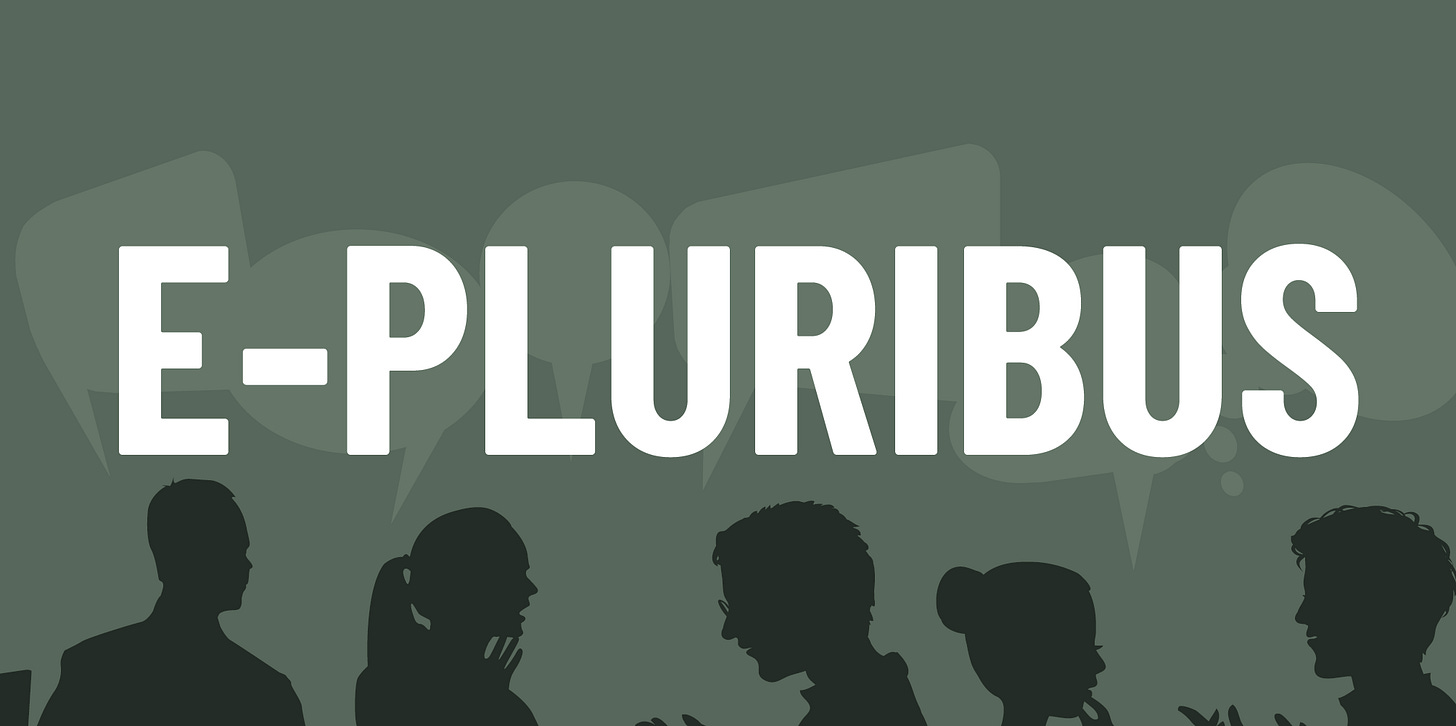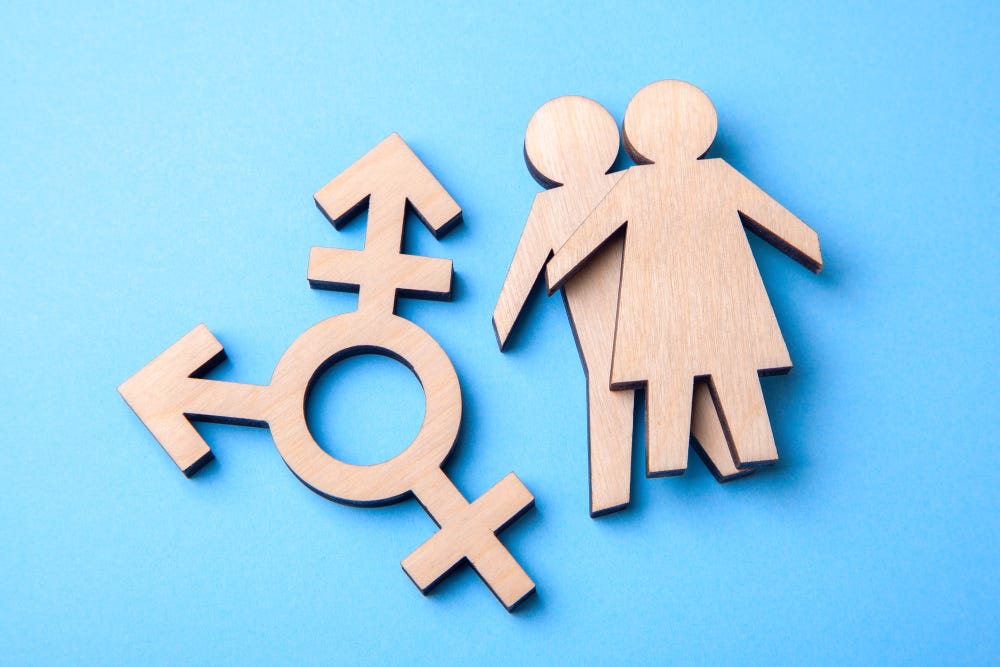E-Pluribus | September 26, 2022
Whatever happened to "tomboys," free speech as truth's ally, and the left shoots down a terrorism documentary.
A round-up of the latest and best writing and musings on the rise of illiberalism in the public discourse:
Colin Wright: Every Tomboy Is Tagged ‘Transgender’
In The Wall Street Journal, evolutionary biologist Colin Wright (known as @SwipeWright on Twitter) addresses the transgender explosion in recent years and how the movement relies so heavily on the outward manifestations of gender that for decades we have been told were invidious stereotypes. Wright documents how it is not simply activists doing this, but medical and mental health practitioners as well, and that often nonconformity in children is now approached with an eye towards surgery or drugs.
Until recently, the term “transsexual” referred to people with a cross-sex identity, a desire to be the opposite sex or even a diagnosis of gender dysphoria. “Transgender,” the favored term now, is far broader. It encompasses mere nonconformity with rigid traditional sex roles. If you’re a tomboy or a feminine boy—if your expression or behavior is different from what is “typically associated” with your sex based on “traditional expectations”—you’re transgender. No wonder so many young people think they need medical help to “correct” their sex.
This idea is propagated by important scientific and medical organizations:
• Planned Parenthood provides services to transgender patients at all its locations, and in 2020 described itself as America’s “second largest provider of gender affirming hormone care.” Its website defines “gender” as “a social and legal status, and set of expectations from society, about behaviors, characteristics, and thoughts” and asserts that “it’s more about how you’re expected to act, because of your sex.” The “gender binary” is defined as “the idea that gender is strictly an either/or option of male/men/masculine or female/woman/feminine based on sex assigned at birth,” and “nonbinary” as a “rejection of the gender binary’s assumption that gender is strictly an either/or option of male/man/masculine or female/woman/feminine based on sex assigned at birth.”
• The American Psychological Association, which establishes the norms for clinical practice in the U.S., defines “transgender” as “an umbrella term for persons whose gender identity, gender expression or behavior does not conform to that typically associated with the sex to which they were assigned at birth.” The Endocrine Society, the world’s oldest and largest organization dedicated to practice and research in hormonal medicine, uses almost identical language. So does the American Psychiatric Association, whose definition of “gender expression” is “the outward manifestation of a person’s gender, which may or may not reflect their inner gender identity based on traditional expectations.”
Read the whole thing.
Iona Italia: Free Speech: Truth’s Only Ally
While postmodernism improbably argues that objective “truth” is unknowable, rejection of that idea doesn’t mean “truth” is always straightforward. Iona Italia, editor of Aero Magazine, writes that while truth is rarely cut-and-dried, society’s best tool for uncovering the mysteries of truth is free speech.
When it comes to our political opinions, there are many incentives to lie. Many people downplay, obscure or even deny passionately held views that they know will be unpopular or that others will find suspect, offensive or crazy. No one wants to be ostracised.
But, for some, the incentives are stacked in the opposite direction: heterodoxy can also be rewarded. If you have been maligned for—for example—supporting Brexit and have found an online community of people who agree with you on the topic, you will find that many of them are also against gender self-ID, opposed lockdowns and have not been vaccinated against Covid-19. There is no intrinsic connection between these viewpoints, yet they are usually inextricably linked. (The same is true of more progressive, woke and left-wing equivalents—this is a general human tendency.) People tend to cluster together and their views on a variety of topics coalesce until they become a like-minded tribe, with an agreed line on every subject of public interest. Hence the paradoxical phenomenon of contrarian orthodoxy, which you challenge at your peril (as editor of heterodox magazine Quillette Claire Lehmann found out when her views on Covid measures conflicted with those of a large portion of her readership).
In addition, we may obfuscate or obscure the truth for fear that bad actors will exploit it for their own purposes. We might, for example, stay silent about some example of Islamic misogyny, homophobia or extremism to avoid providing the western far-right or Hindu nationalists in India with fuel for their bigoted hatred of Muslims as a group. This is a short-sighted policy but understandable. There is always the danger that the wrong people will agree with you and your cause will be discredited by association. Allies of this kind are worse than the most inveterate opponents.
[ . . . ]
I don’t mean to imply that it is primarily left-leaning groups and environments that stifle freedom of expression. This may seem the case, sometimes, in the liberal west, where the British police can arrest people for hurtful tweets and diversity officers can terrorise employees—even sometimes attempting to monitor and correct their subconscious thoughts by using quack psychology tools like the Implicit Association Test.
[ . . . ]
But there is an even greater obstacle to speaking the truth. Even if we are determined to speak truth to power there is the enormous difficulty of determining what is true.
Read it all here.
Michael Powell: Sundance Liked Her Documentary on Terrorism, Until Muslim Critics Didn’t
Conventional wisdom would have said criticism of filmmaker Meg Smaker’s documentary on rehab for terrorists would come from the right. In reality, Smaker was accused by the left of Islamophobia and of presumption for believing she as a white woman could possibly tell the story of Arab men, as Michael Powell reports at The New York Times.
Meg Smaker felt exhilarated last November. After 16 months filming inside a Saudi rehabilitation center for accused terrorists, she learned that her documentary “Jihad Rehab” was invited to the 2022 Sundance Festival, one of the most prestigious showcases in the world.
Her documentary centered on four former Guantánamo detainees sent to a rehab center in Saudi Arabia who had opened their lives to her, speaking of youthful attraction to Al Qaeda and the Taliban, of torture endured, and of regrets.
Film critics warned that conservatives might bridle at these human portraits, but reviews after the festival’s screening were strong.
“The absence of absolutes is what’s most enriching,” The Guardian stated, adding, “This is a movie for intelligent people looking to have their preconceived notions challenged.” Variety wrote: The film “feels like a miracle and an interrogative act of defiance.”
But attacks would come from the left, not the right. Arab and Muslim filmmakers and their white supporters accused Ms. Smaker of Islamophobia and American propaganda. Some suggested her race was disqualifying, a white woman who presumed to tell the story of Arab men.
Read it all.
Around Twitter
Several reactions on Twitter to Michael Powell’s article above:
“Stay in your lane” makes for a funny commercial, but is a terrible idea for literature and publishing. More thoughts on the Michael Powell article above:
And finally, Pluribus is all for free speech and the mission of the Foundation for Individual Rights and Expression, but guys, not all analogies are created equal…











